
Executive Brief
Chair, Department of Indigenous Studies
Simon Fraser University
About Simon Fraser University (SFU)
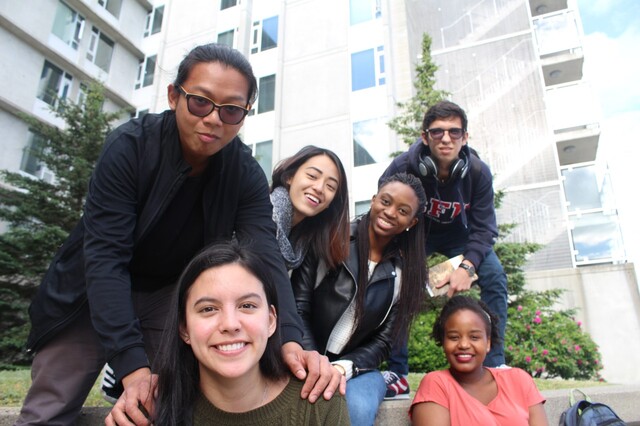
Founded in 1965 during a time of activism and social changes, SFU’s radical roots continue to inspire intellectual curiosity and interdisciplinary collaboration. Students, faculty and staff take an unflinching approach to the complex questions, ideas and issues of our time.
Purpose and pedagogy have led SFU to become known as Canada’s engaged university, extending academics beyond the traditional borders and boundaries of the classroom, campus or lab. SFU calls this Outside Thinking and it thrives in all eight faculties.
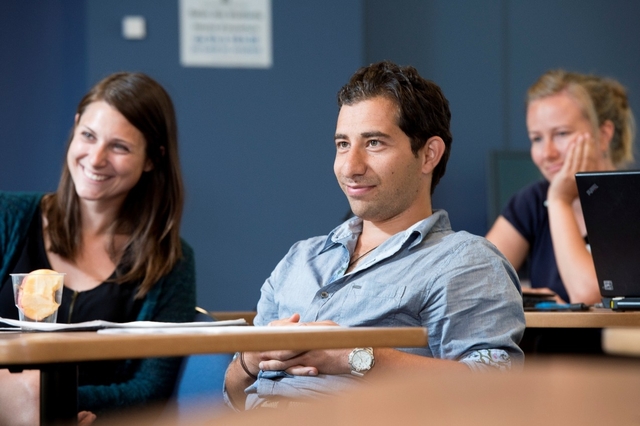
Today, SFU is ranked among Canada’s top 15 research universities by major national and international university ranking systems. It is the first university in British Columbia to be designated an Ashoka U Changemaker Campus due to its leadership in community engagement and innovation and our deep-seated desire to contribute to meaningful change.
SFU’s achievements in academics and research are guided and underpinned by a strong financial foundation, which supports growth and development. Its financial position is strong, with an annual consolidated operating budget of $750 million.
Built on academic and intellectual freedom, SFU values multi-ethnic diversity, global knowledge and citizenship amongst all its students, faculty and staff.
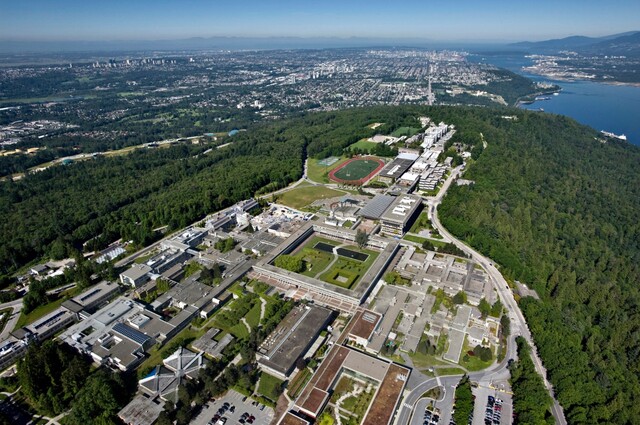
SFU honours the history and contribution of indigenous peoples, cultivate a work environment of recognition and support, and pursue ecological, social and economic sustainability through all programs and operations.
SFU believes each student, faculty and staff member on its campus is a valuable voice, and together with its communities continues to challenge traditional thought and educational culture to remain on the cutting edge.
With locations in Burnaby, Surrey and Vancouver, each campus is situated within a unique community. The main campus is located on Burnaby Mountain, offering convenient access to all that the Lower Mainland has to offer. SFU respectfully acknowledges the xʷməθkʷəy̓əm (Musqueam), Sḵwx̱wú7mesh Úxwumixw (Squamish), səl̓ilw̓ətaʔɬ (Tsleil-Waututh), q̓íc̓əy̓ (Katzie), kʷikʷəƛ̓əm (Kwikwetlem), Qayqayt, Kwantlen, Semiahmoo and Tsawwassen peoples on whose unceded traditional territories the three campuses reside.
SFU's Mission
Mission Statement
“To be the leading engaged university, defined by our dynamic integration of innovative education, cutting-edge research and far-reaching community engagement.”
Engaging Students
Equipping students with the knowledge, skills and experience that prepare them for life in an ever-changing and challenging world.
Engaging Research
Being a world leader in knowledge mobilization, building on a strong foundation of fundamental research.
Engaging Communities
Being Canada’s most community-engaged research university.
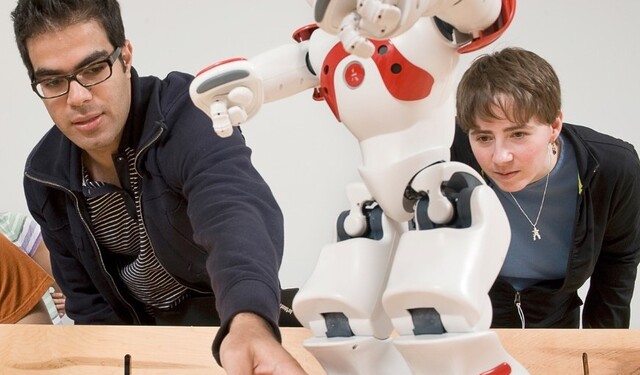
SFU’s Principles
Academic and Intellectual Freedom: An open and inclusive foundation.
Diversity: A culture of mutual respect and celebration of multi-ethnicity.
Internationalization: Global understanding, engagement and contribution.
Respect for Aboriginal Peoples and Cultures: Honouring history, culture and presence.
Supportive and Healthy Environment: An equitable, enjoyable and rewarding workplace.
Sustainability: Ecological, Social and economic best practice.
Click here to learn more about SFU’s Strategic Vision
SFU at a Glance
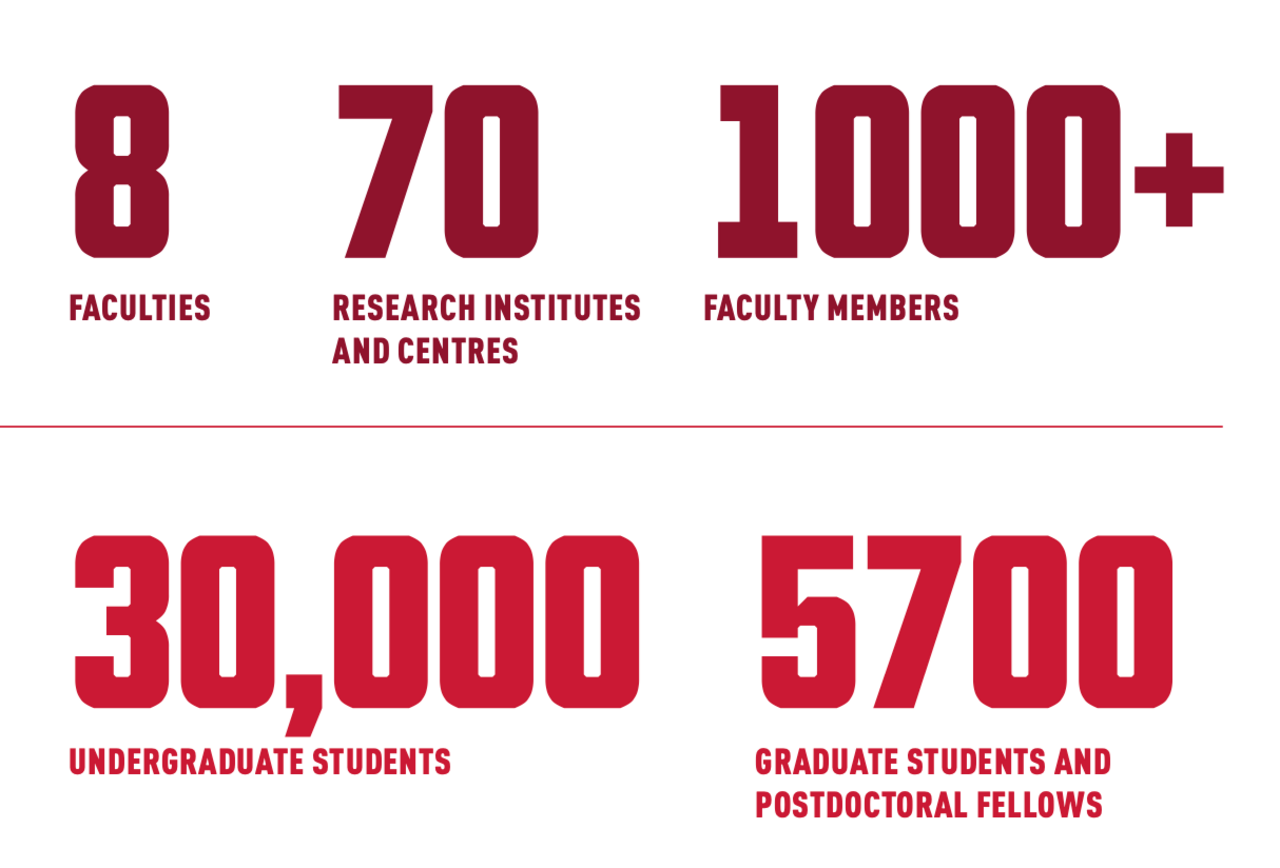
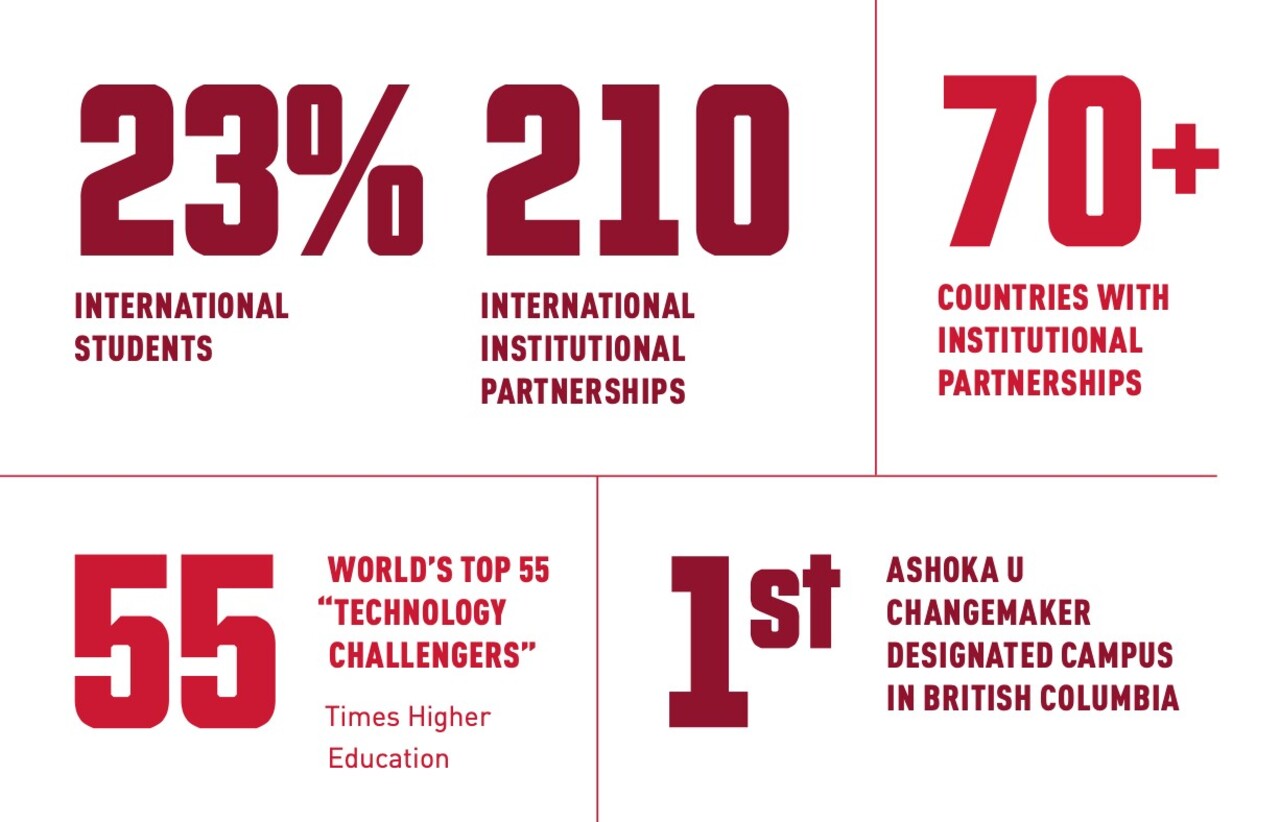
Academic Plan
SFU has a reputation for rigorous academic programming and world-leading research, which means constantly adjusting program design and delivery to meet changing labour markets and learning needs. SFU focuses on delivering cutting-edge education to their students by streamlining and innovating degree pathways, enhancing both distance and flexible learning, and exploring alternative assessment methods. Their five-year academic plan outlines strategies SFU will need to focus on to continue to be a leading engaged university, and addresses goals in each of the five challenge areas:
-
- Student Life, Learning & Success
- Academic Curriculum
- Engagement
- Interdisciplinary
- Faculty and Staff Renewal
Click here to learn more about SFU’s 2019-2024 Academic Plan
Faculties
While the journey through SFU may begin in a single faculty and programs, students have the freedom to explore their interests and pursue their individual passions through a multitude of courses, disciplines, minors, concentrations and special topics.
- Applied Sciences
- Arts and Social Sciences
- Beedie School of Business
- Communication, Art and Technology
- Education
- Environment
- Health Sciences
- Science
Campuses
SFU has three vibrant campuses located on the unceded territory of the Coast Salish people in British Columbia’s largest municipalities – Burnaby, Surrey and Vancouver – and deep roots in partner communities throughout the province and around the world. Each campus is strategically placed to connect students to the surrounding environment and community, where they can cultivate relationships through academic, civic and volunteer opportunities.
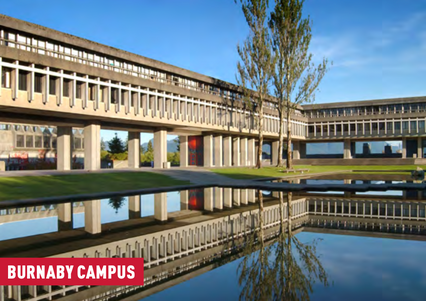
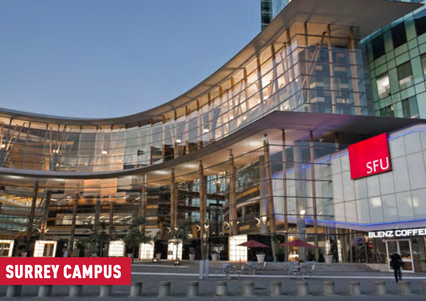
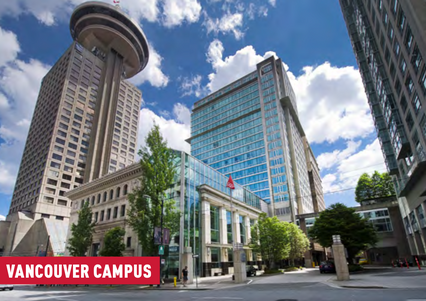
Campus Expansions
SFU is dedicated to designing campuses and surroundings to answer community needs, and foster positive environmental and cultural impact. At their Burnaby campus, a proposed urban transit gondola would alleviate the current 25,000 daily bus rides, cut travel times in half, and reduce greenhouse gas emissions by more than 7,000 tonnes. At their Surrey campus, expansion is already underway with the opening of a five-storey, 15,000-square-foot building that houses the Sustainable Energy Engineering program.
Governance
SFU’s leadership was assembled to reflect its fearless dedication to innovative education. From a variety of backgrounds and specialties, SFU executives and deans recognize that to create a dynamic education experience for students, collaboration has to begin with them.
The Board of Governors is the senior governing body at Simon Fraser University constituted under the University Act. The overall responsibility for the business of the university (property, revenue and policies) is vested in the board, while the academic governance is vested in the senate.
The SFU Board of Governors has 15 members including the chancellor, the president, two elected faculty members, two elected students, one elected staff member and eight individuals appointed by the Government of the Province of British Columbia.
Current and Future Growth
Here to Grow: Equity, Diversity & Inclusion
Universities like SFU originate from eurocentrism, colonialism and bureaucracies that reinforce systems of power and privilege and leave many on the margins. Though there are strengths to build on, SFU must take further steps to dismantle these structures and systems as they journey towards building a more inclusive and equitable community. In order to make change, the university is committed to continual growth, action and accountability in its practices and policies. To learn more about EDI at SFU, visit:
Reconciliation & Indigenization
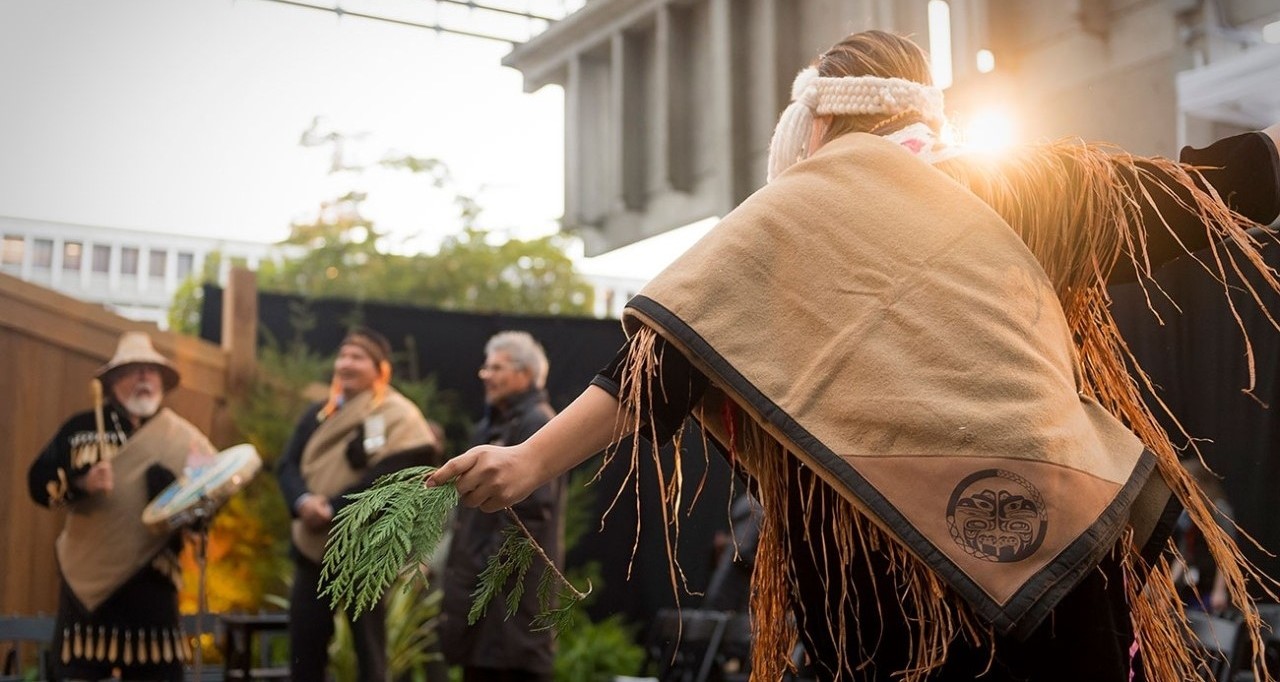
In acknowledging all the land holders of shared territories, SFU takes responsibility of reconciliation by understanding the truth and stories of these lands and the peoples’ relationships and responsibilities to these lands. Important reconciliation and decolonization work is being done across SFU by individuals, teams and departments as the university continues to transform and become a leader in Indigenizing their curriculum. In 2018, SFU began implementing 34 calls to action from an SFU Aboriginal Reconciliation Council’s Report.
Current Actions SFU is Working Towards
- Establishing a new Indigenous leadership position. A working group has been struck, co-chaired by Squamish Councillor and Spokesperson and SFU alumnus Chris Lewis and Provost Catherine Dauvergne. This group will provide advice on the position, the portfolio and supports for this new leader. This listening and engagement process will take approximately six months and will be guided and led by Indigenous protocols and practices to understand the needs and wishes of local Indigenous communities, on whose shared territories SFU campuses reside.
- Supporting the actions called for in Looking Forward... Indigenous Pathways To and Through Simon Fraser University, co-authored by Dr. Michelle Pidgeon, Joe Tobin, Trina Setah, Andrea Leveille, Donna Dunn, Mindy Ghag, Karen Johnson, and Dr. Tania Bubela and released in January 2021. The report has been received by the provost, and work on an Indigenous leadership position is the first implementation step. The provost is also working alongside the Indigenous community at SFU on a funding framework and a three year implementation plan.
- Entering a Memorandum of Understanding with Tsleil-Waututh Nation and renewing an agreement with Squamish Nation to continue our path in deepening our relationships with local First Nations.
- Continued emphasis on scholarship programs, such as the Aboriginal Student Entrance Award and the Langara Admission Pathway, which has five dedicated awards.
- Commitment to strike a working group to look at Indigenous naming of spaces and places on SFU campuses.
To learn more about Reconciliation at SFU, visit:
Learn more Simon Fraser University
- President's Office
- Facts and Figures Brochure
- Sustainability at SFU
- SFU Names Dr. Joy Johnson as its 10th President and Vice-Chancellor
- SFU names #1 in global university ranking for impact on sustainable cities and communities
Explore Simon Fraser University
Here to Grow: Community
Here to Grow: Students
Here to Grow: Research

